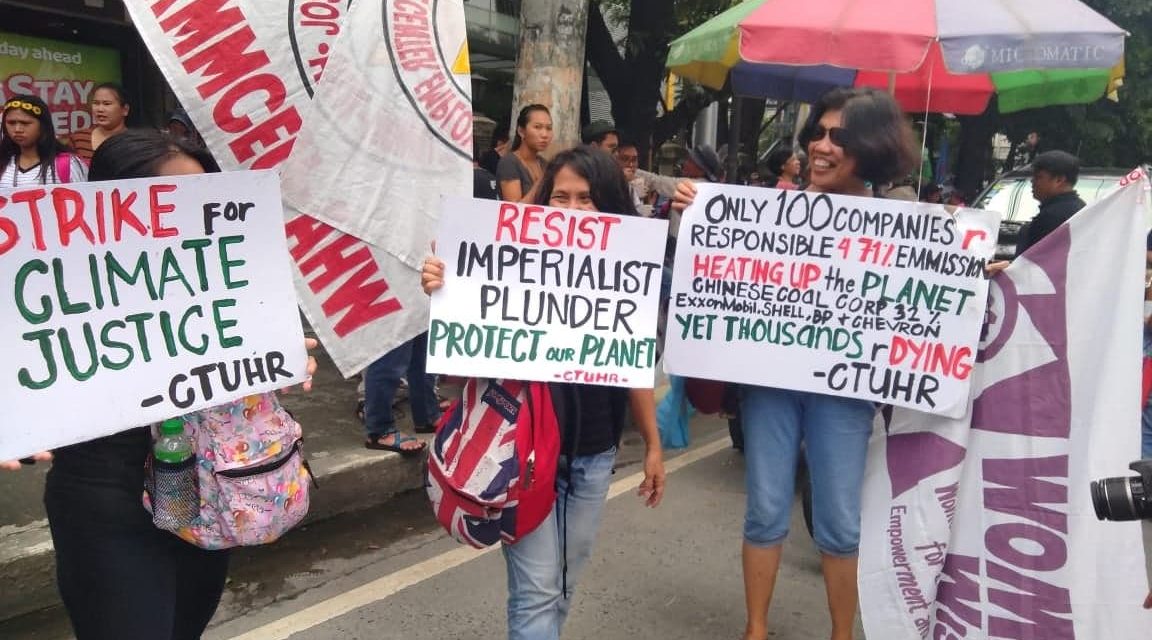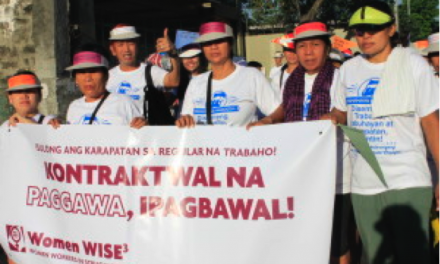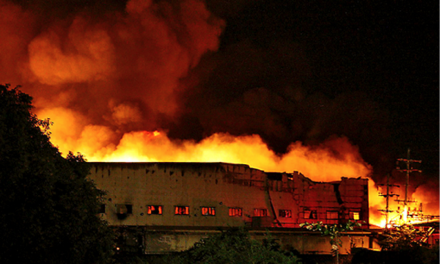Today, September 20, marks the Global Climate Strike organized and spearheaded by the youth and supported by different sectors around the world. This aims to make a strong call for Climate Justice, in time for the United Nations’ climate talks leading to the 26thConference of Parties of the UN Framework Convention on Climate Change.
Workers are one of the most vulnerable sectors affected by the climate change inside and outside the workplace, from frequency of workplace accidents and illnesses to loss of love ones and livelihoods from extreme weathers events like extreme heat, floods, landslides and typhoons. Workers must not only support but also mobilize for the Global Climate Strike before we get wiped out by climate change, ”Daisy Arago, Center for Trade Union and Human Rights (CTUHR) Executive Director said.
Every day the continuous changes in temperature are sending especially the workers in the agriculture and construction sectors in increased precarious working conditions. Too much heat had put them in greater risk of heat-related hazards and illnesses and landslides and joblessness when it is raining. Not only their productivity is greatly reduced due to heat stress but their income as well as no work, no pay system, regardless of weather exists.
According to the International Labor Organization (ILO), the work lost due to heat stress in the agriculture and construction sectors is expected to soar to 6.5% by 2030. Arago also emphasized the findings of a recent study that revealed that only 100 transnational corporations are responsible for 71% of greenhouse gas emissions burning the earth. Big oil companies are heating up the planet, while the poor are choking from high fuel prices.
Aside from the scorching heat, extreme weather events or natural disasters such as floods, landslides, storms, droughts and wildfires are becoming more frequent and intense. Worker populations, who suffer from low wages, lack of job security, inadequate housing, poor social services and low access to health services and clean water, also bear the heaviest brunt from natural disasters. “Workers and their communities have to be resilient from climate change impacts, and the only way for them to do that having decent jobs that pay them well and enable them to have decent housing and better access to social services,” adds Arago.
The Philippines is one of the five (5) countries most vulnerable to the impact of natural disasters and climate change due to our geographic location and economic activities. Activities that are very destructive to the environment and to the planet like large-scale deforestation, mining activities, dependence on coal-fired power plants and even use of chemicals in the manufacturing sector etc.
The Center vows to help in raising awareness and building the capacity of workers to cope with natural calamities, mitigate and address the impacts of climate change individually and in an organized way. Holding corporations to account and to stop their destructive activities for increased profit is everyone’s responsibility and we owe this to our children and future generation that they have safer place to dwell, CTUHR ended.
Stop deforestation now!
No worker shall be suspended from work due to climate disaster!
Hold Corporations to account!
Climate Justice Now!###








